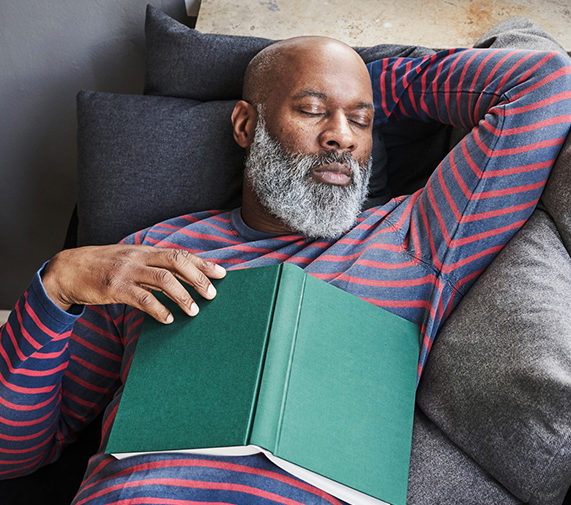Americans are a productive culture, and pretty much the only people who get a pass on naps are toddlers and visiting Europeans. But research shows that a midafternoon snooze can actually help us in many ways. Naps can reenergize us for the rest of the day. They improve our health and can positively affect our memories and how we process information.
The perfect nap length and time of day is different for each person, but generally as little as 20 minutes can make an impact. Some nappers find that a full 90-minute sleep cycle makes them feel nearly as good as a full night’s sleep. But excessive sleepiness can be a harbinger of underlying health problems or insomnia—if you’re napping for long hours each day for no apparent reason, get checked by a doctor.
How Napping Improves Your Health
Napping can reduce inflammation in the body. Researchers at the University of Massachusetts found that young adults who napped had a lower amount of C-reactive protein (CRP), which marks levels of inflammation—but the study also found that too many naps and not getting enough sleep elevated the CRP.
Napping can also help control weight. In 2004, a Stamford University study found that when the body doesn’t get enough sleep, it releases extra hormones like ghrelin, which triggers hunger and leptin, which sends a “starvation” signal from your body. Combined, these hormones can make you overeat when you’re just tired, not actually hungry.
Finally, when you nap, you help diffuse your brain’s stress signals. An Allegheny College study on younger adults revealed that a 45-minute or longer nap resulted in better cardiovascular recovery from stressful tasks and situations.
A Better Brain?
We know a quick catnap can be a reboot for your body and brain, and make it easier to get through the rest of the day without other stimulants, such as sugar, coffee or tea. Sleep deprivation can wreak all kinds of havoc, including exacerbating health issues and creating an environment for false memories. Napping can even save your life—a quick sleep before driving can keep you from nodding off on the road or making a fatally bad decision.
But can it make you smarter? Maybe. Napping can improve cognitive skills in older people, a Harvard study found. And a University of California, Berkeley researcher discovered that naps can purge the backup of information in? your brain’s hippocampus, allowing you to learn easier and more efficiently. “It’s as though the email inbox in your hippocampus is full and, until you sleep and clear out those fact emails, you’re not going to receive any more mail. It’s just going to bounce until you sleep and move it into another folder,” says Matthew Walker, the assistant psychology professor who led the study. The less sleep you get, the less you can take in and recall.
Even though siesta time usually isn’t until late afternoon in Spain, (traditionally to avoid the heat of the day and catch up from a late night out), a study of older Chinese adults found that post-lunch naps bring the most cognitive benefits.
How to Sneak in a Nap
Maybe you’re thinking, “I would love to take a nap, but when? How?” If you work in a big office, try booking a conference room or unused office with a door that locks, and bring a jacket or sweater to use as a pillow. You can also try to escape to your car—park it in a shady spot away from where co-workers are, put the seat down and catch your Z’s. If you’re really desperate, there’s always the “under the desk” or “last bathroom stall against the wall” move.
When at home during the day, try to schedule a 30 to 90-minute nap and don’t allow anything to interfere—no online shopping, no Netflix, no getting dinner ready. Cut out late-morning caffeine and drink water or herbal tea instead. Kids around? How much time can you buy when you pop in a video? Make the room as dark as possible (think about blackout shades), set your phone to silent, and lay on your back in comfortable clothes or whatever you normally sleep in.
If there are too many distractions at home or at work, perhaps the next best thing is to rely on your network. Ask a good friend or neighbor if you can borrow their couch for a nap sometime in exchange for walking the dog or watering plants. Even if it’s only a 20-minute respite from the world, it’s worth it.
twistup
Love OrangeTwist?
Join our twistup membership and receive a $100 gift card today!



